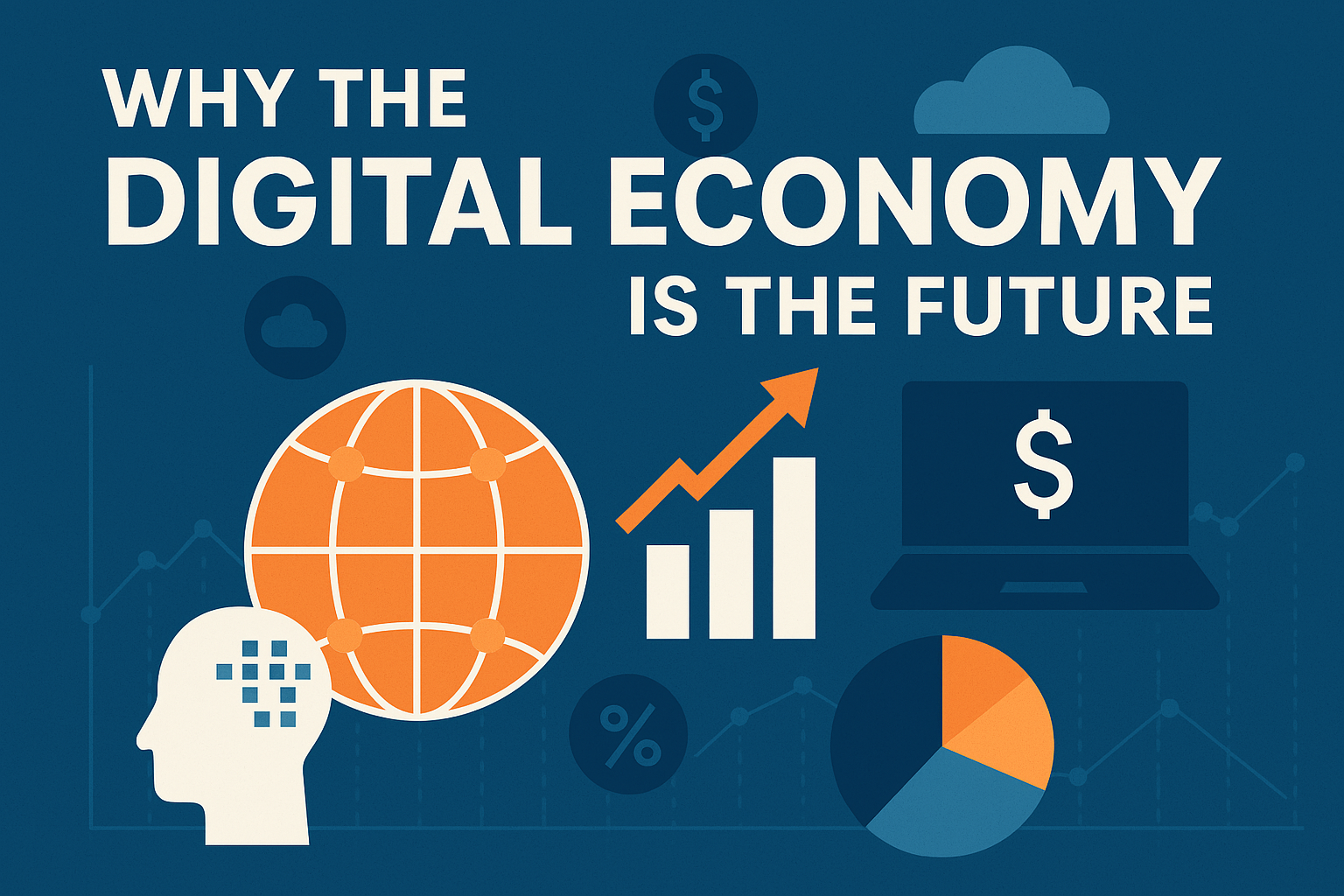Why Digital Economy Is the Future: Facts, Figures, and the Road Ahead
In an era where smartphones are more ubiquitous than toothbrushes and cloud computing powers everything from our playlists to our payrolls, the writing is on the wall: the digital economy isn’t just coming—it’s already here. And it’s only getting bigger, faster, and smarter.
What Is the Digital Economy, Exactly?
The digital economy refers to economic activity driven by digital technologies. This includes everything from e-commerce, fintech, and digital services to AI, cloud computing, and data analytics. It’s not limited to tech companies—every industry is now being reshaped by digital tools, platforms, and business models.
The Numbers Don’t Lie
Let’s talk data. According to the World Economic Forum, the digital economy accounted for 15.5% of global GDP in 2022, and it’s expected to grow to over 24% by 2025. That’s nearly a quarter of the entire world’s economic output, all driven by bits and bytes.
In the U.S., digital economy activity totaled $2.4 trillion in 2021, about 10.3% of GDP, according to the U.S. Bureau of Economic Analysis. And this trend is accelerating, not slowing.
The Pandemic Was the Catalyst
COVID-19 didn’t create the digital economy, but it definitely supercharged it.
- E-commerce jumped ahead 10 years in just 3 months in the early stages of the pandemic, according to McKinsey.
- Remote work went from fringe to mainstream—by 2023, nearly 28% of U.S. employees were working remotely at least part-time, according to Pew Research Center.
- The global online education market is expected to reach $350 billion by 2025, up from $190 billion in 2018, per Research and Markets.
Every pivot businesses made to survive—Zoom meetings, online ordering, cloud collaboration—laid down digital infrastructure that’s now permanent.
Why It’s the Future (Not Just a Trend)
Here’s why the digital economy is not just a wave—it’s the ocean:
1. Scalability and Efficiency
Digital tools allow businesses to scale at unprecedented rates. A software platform can serve millions of customers with minimal added cost. Amazon doesn’t need a new store in every city—it just needs faster servers.
2. Data Is the New Oil
In 2020, humans created 1.7 MB of data per second per person, according to Domo’s Data Never Sleeps report. Businesses use this data to personalize services, improve logistics, and drive decision-making—giving digital-native firms a massive edge.
3. Global Reach
A TikTok creator in Lagos can reach audiences in London, Lima, or Los Angeles. A Shopify store in Bangkok can sell to buyers in Berlin. Geography is no longer a barrier to economic participation.
4. Innovation Flywheel
AI, blockchain, IoT, and quantum computing aren’t just buzzwords—they’re feeding into each other to create exponential innovation. Companies that master this tech stack will dominate the next decade.
Winners and Losers in the Shift
There’s a digital divide—between those who adapt and those who don’t.
- Winners: Digital-first companies like Amazon, Alibaba, Zoom, and fintech startups.
- Losers: Brick-and-mortar businesses without online strategies, legacy industries resisting automation.
But this isn’t just about companies—it’s about countries. Nations investing in digital infrastructure, broadband access, and digital literacy are setting themselves up to lead the 21st-century economy.
Challenges Ahead
Let’s be real: the digital economy has its growing pains.
- Cybersecurity threats are rising, with global cybercrime damages predicted to hit $10.5 trillion annually by 2025.
- Job displacement from automation is real. The World Economic Forum estimates that 85 million jobs may be displaced by machines by 2025—but 97 million new roles will be created in tech-heavy sectors.
- Digital inequality is a pressing issue—billions still lack reliable internet access, especially in developing regions.
The future must include policies that ensure equity, privacy, and resilience.
Conclusion: Adapt or Be Left Behind
The digital economy isn’t a distant concept—it’s the operating system of modern life. For businesses, governments, and individuals alike, adapting to this reality isn’t optional—it’s existential.
The winners of the next decade won’t just use digital tools—they’ll think, act, and build digitally from the ground up.

